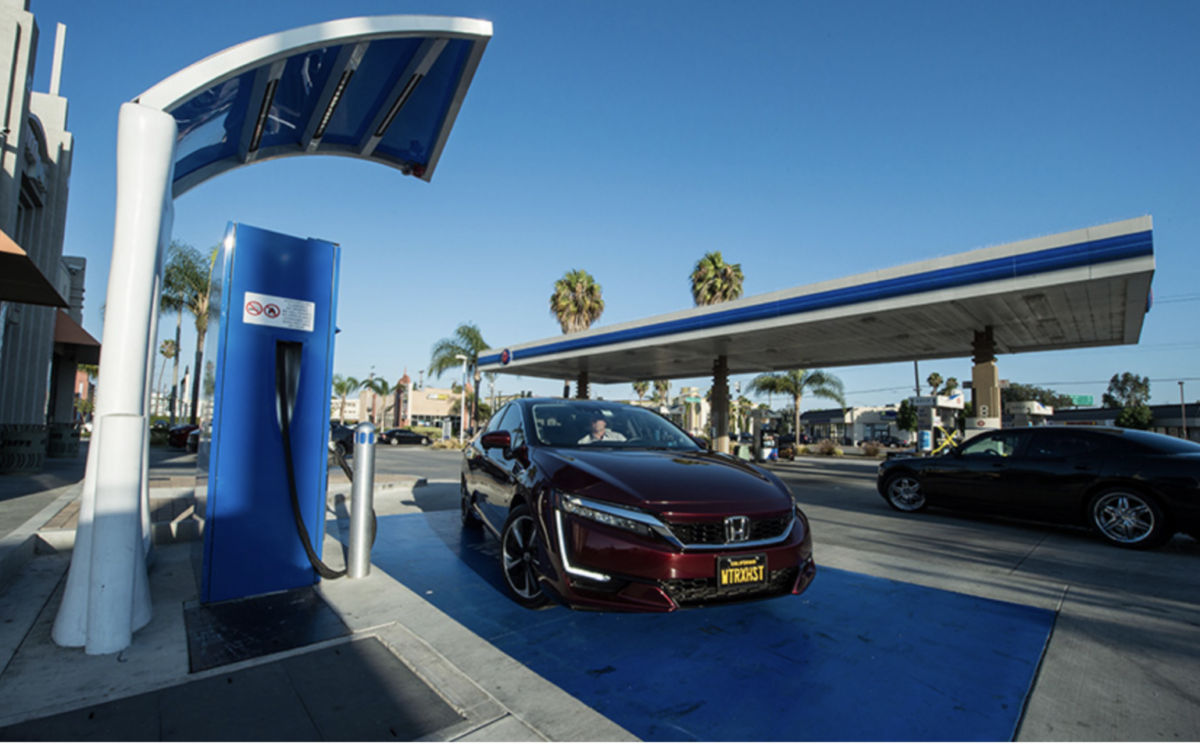From pv magazine USA
New research from NREL and Colorado State University (CSU) shows that consumers could develop more confidence in switching to hydrogen-fueled vehicles if fueling station operators use predictive models that help them plan for maintenance needs.
According to the research, one of the key issues consumers of fuel cell electric vehicles could face is when hydrogen refueling stations shut down for unscheduled maintenance issues, and this could slow the adoption of these zero-emission vehicles. However, the authors pointed to a “prognostics health monitoring” model that they said could help hydrogen refueling stations avoid these shut downs.
Motorists expect to be able to fuel their vehicles without any problems, and drivers of hydrogen-fueled cars should have the same experience, Jennifer Kurtz, lead author of the paper, said. Kurtz leads NREL’s Energy Conversion and Storage Systems Center.
“This predictive model can let station operators know in advance when a problem might occur and minimize any disruptions that motorists might experience with hydrogen fueling,” Kurtz said.
NREL is the US Department of Energy's (DoE) primary laboratory for research and development connected to renewable energy and energy efficiency. This latest paper was funded by the DoE’s Hydrogen and Fuel Cell Technologies Office.
The research focuses on a specific model called hydrogen station prognostics health monitoring, or H2S PHM, which uses data to reduce the frequency of unscheduled maintenance, and instead increase the frequency of preventive maintenance.
The model looks at how many fills the refueling station has completed to figure out the probability that a component will continue working, and can also estimate the remaining useful life of each component, helping to lower maintenance costs.
However, this model has its own limitations when looking at the reliability of a hydrogen station, since it cannot predict sudden failures caused by human error.
One of the most common reasons that hydrogen refueling stations shut down without warning is due to issues with the dispenser system, which includes hoses and dispenser valves, according to the National Fuel Cell Technology Evaluation Center.
Hydrogen refueling stations are still relatively rare in the U.S. As of this year, there were 59 retail hydrogen refueling stations in the United States, mostly in California, according to the DoE – compared to the 10,000 gas stations in the state.
“With relatively few choices, motorists who rely on hydrogen must be confident their needed fuel is available. Station operators must make any necessary repairs to meet the demands of consumers, but they also must investigate the causes of any failures to avoid future problems,” said NREL.
However, this could soon be changing. This year, fuel cell electric vehicle manufacturer Nikola Corporation received $58.2 million from different regulatory agencies to set up a hydrogen refueling station network for heavy-duty trucks. And last year, Daimler Truck North America, NextEra Energy Resources and BlackRock Renewable Power announced they had signed a memorandum of understanding to take a closer look at designing, installing and operating a charging network for medium- and heavy-duty battery electric vehicles as well as hydrogen fuel cell vehicles across the nation, with an initial investment of $650 million.
This content is protected by copyright and may not be reused. If you want to cooperate with us and would like to reuse some of our content, please contact: editors@pv-magazine.com.



2 comments
By submitting this form you agree to pv magazine using your data for the purposes of publishing your comment.
Your personal data will only be disclosed or otherwise transmitted to third parties for the purposes of spam filtering or if this is necessary for technical maintenance of the website. Any other transfer to third parties will not take place unless this is justified on the basis of applicable data protection regulations or if pv magazine is legally obliged to do so.
You may revoke this consent at any time with effect for the future, in which case your personal data will be deleted immediately. Otherwise, your data will be deleted if pv magazine has processed your request or the purpose of data storage is fulfilled.
Further information on data privacy can be found in our Data Protection Policy.